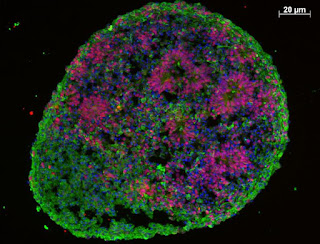Discovery May Advance Neural Stem Cell Treatments for Brain
Disorders
"Having
the capacity to keep up suitable undifferentiated cells in the mind could
prompt regenerative treatments to treat damage and ailment," says Jing
Crystal Zhao, Ph.D., aide teacher at SBP. "Our investigation uncovers a
formerly obscure however fundamental capacity of a mRNA change in directing NSC
self-recharging. As NSCs are progressively investigated as a cell substitution
treatment for neurological scatters, understanding the fundamental science of
NSCs—including how they self-restore—is basic to tackling control of their in
vivo works in the mind."
NSCs
are forebear cells introduce amid embryonic improvement as well as in the
grown-up mind. NSCs experience a self-reestablishment procedure to keep up
their populace, and in addition separate to offer ascent to all neural cell
composes: neurons, astrocytes and oligodedrocytes.
The
present investigation concentrated on the self-recharging part of NSCs.
Utilizing knockout mice (KO) for the compound that catalyzes the m6A
alteration, Zhao's group discovered that m6A change keeps up NSC pool by
advancing expansion and averting untimely separation of NSCs. Essentially, the
analysts found that m6A alteration directs this by controlling histone
adjustments.
Histones—the
proteins stuck cells that tough situation and bundle DNA—and their changes
assume a vital part in whether qualities are turned "on" or
"off". Some histone alterations conservative the DNA to conceal a
quality from the cell's protein-production apparatus and therefore turn quality
"off". Then again, histone changes can likewise relax up DNA for
quality presentation to turn quality "on".
"Our
discoveries are the first to delineate cross-talk amongst mRNA and histone changes,
and may prompt better approaches to target qualities in the mind," says
Zhao. "Theoretically, we could utilize the alteration, which is the
methylation of adenosine deposits, as a 'code' in mRNA to target histone
changes to turn quality on or off," says Zhao.
Medications that
adjust histones have a long history of utilization in psychiatry
and neurology,
and progressively in disease. Be that as it may, current medications that
adjust histones are as a rule non-particular; they work over the whole genome.
For more details kindly
follow the link: https://mental-health.neurologyconference.com/





No comments:
Post a Comment